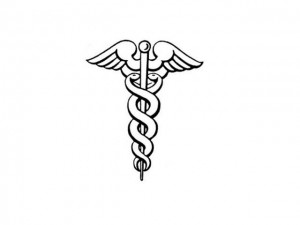The number of influenza cases in Illinois is on the rise, but it is not too late to get a vaccine, the Illinois Department of Public Health said.
 “Flu activity typically peaks in January, but can run into April,” IDPH Director LaMar Hasbrouck said. “Getting vaccinated now can help protect you from the flu in the coming months.”
“Flu activity typically peaks in January, but can run into April,” IDPH Director LaMar Hasbrouck said. “Getting vaccinated now can help protect you from the flu in the coming months.”
Families with young children who have no insurance, or cannot pay for a flu vaccine, may be eligible for the Vaccines for Children program at the Madison County Health Department, Public Information Officer Amy Yeager said. Information is available at 618-692-8954, extension 2. The IDPH recommends everyone six months and older receive a flu vaccination.
The IDPH reported 122 flu-related intensive care unit hospitalizations and six flu-related intensive care unit deaths between Sept 29, 2013 and Dec. 28, 2013. An increase in the number of hospitalizations and deaths is expected as the flu season continues. The number of reported cases is consistent with previous years, Yeager said.
In addition to doctor’s offices, the Madison County Health Department and health clinics, vaccinations are available at pharmacies and other health care providers. To find a list of locations providing vaccinations nearby, enter your zip code on the flu.gov website. There are no reports of flu vaccine shortages in the area, Yeager said.
Seasonal flu is responsible for severe illness and death every year, but those most affected varies depending on the predominant circulating virus. So far this season, 2009 H1N1 viruses have been most common. The 2009 H1N1 viruses have circulated as a seasonal flu virus worldwide since it emerged in 2009, causing a pandemic, the IDPH said.
During the pandemic, younger adults and children, particularly people with chronic medical conditions and pregnant women, were harder hit by H1N1 compared with adults aged 65 and older. If the H1N1 virus continues to circulate widely, illness may disproportionately affect young and middle-aged adults this season.
This year, some who have been severely ill with complications have been younger individuals with no underlying health problems, the IDPH said. Typically, those at high risk for serious flu complications are people with underlying chronic medical conditions, such as asthma, diabetes, heart disease, or neurological conditions; pregnant women; those younger than 5 years-old or older than 65; or anyone with a weakened immune system.
To reduce the spread of flu, the IDPH recommends following the “3 Cs” — clean your hands, cover your mouth when you sneeze and contain germs by staying home when you are sick.



